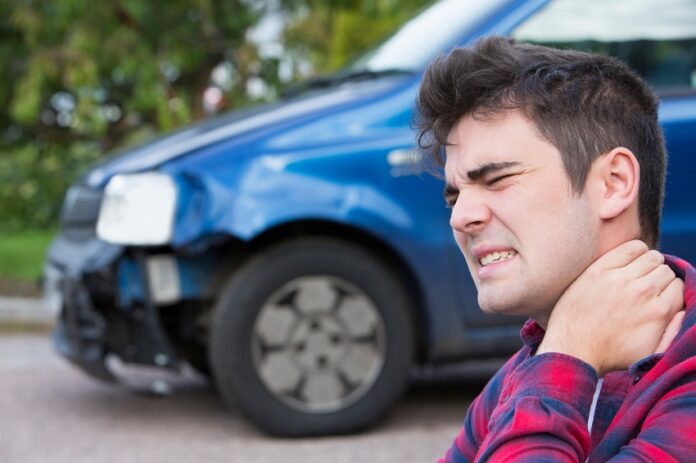Car accidents can be one of the most traumatic experiences of someone’s life. Even if many car accidents don’t cause problems, others can be jarring to everyone involved and cause severe injury and death.
Getting into a car accident is more common than you think too. Reports show that there were more than 6.75 million accidents in 2019 alone. That’s why you must prepare for the chance of getting into an accident yourself.
Knowing what to do after a car accident is critical to getting the help you deserve. Read the guide below to learn how to correctly handle an auto accident case.
1. Check Everyone for Injuries
The first thing that should be on your mind after a car accident is the safety of everyone involved. Start with yourself and any injuries you have. Once you verify your safety, ask everyone else in your car if they are okay.
Once you check on everyone in your car, head to the other vehicle to check on the other driver and their passengers. If anyone has injuries, call 911 immediately to get emergency services to the scene.
Even if a scratch or pain doesn’t seem bad, that doesn’t mean it isn’t a sign of something more serious. Your adrenaline pumps hard after an accident — which makes it easy to overlook injuries and not notice them until later.
2. Contain the Accident Scene
Once you verify everyone’s safety, you can start processing what happened. Take the following steps to contain the accident scene and document what happened.
Move Vehicles to Safety
You don’t want cars to remain stationary on the road. You’ll be in everyone’s way there, and there’s no guarantee that someone won’t make the accident worse by not paying attention to what’s on the road.
Find the nearest safe space to move your vehicles. If you’re on the interstate, try to get everyone to the side of the road. If you’re in the city, try finding parking nearby to move everyone.
Of course, you may not be able to do this in every situation. If you were in a bad accident, your car might not function.
Don’t go out of your way to move the cars in this situation. When this happens, the most important thing to do is turn on the emergency blinkers and get off the road. The longer you’re there, the more danger you put yourself in.
Stay on the side of the road until emergency services get there to help move your cars.
Call the Police
Once you make sure everyone is safe, you can call the police to get them to the scene. This step is essential because the insurance company may not take your word about the accident. You need a police report to confirm what happened.
Once the police arrive, they’ll collect information from everyone involved. This includes license plates, names, damages, and everything else.
Depending on the accident’s severity and how busy the police are, they may not arrive on the scene. Try not to panic if this happens.
You can still head to the police station after dealing with the accident scene. Head to the police station to file your police report to get the documentation you need for the insurance company.
Document Everything
The documentation phase is one of the most important parts of a car accident’s aftermath. The insurance companies will want as much information as possible to handle the claim. If you don’t do this right, it can impact your claim and lead to an inadequate settlement.
Make sure to collect as much information as possible during this process. Here are a few common items to document:
- Drivers license
- Names
- License plates
- Photos of damage
- Witness information
- Injury information
- Location of the accident
- Vehicle owner information (if different from the driver)
- Cause of accident
- Insurance information for other drivers
This information will help insurance companies figure out what’s going on and make the best determination about your case.
Offer as Little Information As Possible
One significant mistake accident victims make is talking too much at the accident scene. Yes, you will need to talk to the other driver and the police when figuring things out. But you should only offer as much information as necessary.
This is important because everyone else involved and the insurance companies may not have your best interest in mind. Anything you say can be used against you and work against your insurance settlement.
The biggest thing to avoid here is admitting fault for the accident. Let the insurance companies decide that and work off the information they provide.
3. Submit Your Insurance Claim
Once you wrap things up at the accident site, it’s time to file your insurance claims. No matter who is responsible for the accident, notify your insurance company.
They will want to know what’s happening and not hear from secondary sources. Your insurance provider can also help you deal with the other insurance company handling the settlement.
Once you contact the company handling your claim, reach out to the claim department to figure out how to submit your documentation. You’ll likely get an email address to send all the information you collected.
Once you give your information, the insurance company will want to assess your vehicle’s damage. Work with them to get an assessment at a certified body shop. This will tell you if you can repair your car or need to total it.
4. Wait for Your Claim Settlement
It’s a waiting game after you file your insurance claim. Your insurance provider will want to research on their own. They will assign an insurance adjuster to examine your car damage, injury information, and other accident information.
Once they get this information, they’ll process everything to determine how much you get with your settlement. Of course, this may not happen immediately.
If you suffered from an injury during the accident, it’s important to keep track of things during this time. You may suffer additional medical expenses, travel expenses, and other burdens. The insurance company needs to know these things to give you the proper settlement.
You’ll also need to figure out if you have any long-term expenses because of the accident. This can go outside the scope of a typical insurance claim, so it’s critical to determine this before you settle your claim.
5. Accept or Deny the Settlement
In many cases, you won’t have an issue with your insurance settlement. The insurance company will do its part and cover your damages. In cases like that, accept your settlement and move on with your life.
But things won’t always be that simple. Sometimes the insurance company won’t give you enough money. In others, you’ll have medical complications and need more help.
You don’t have to accept the settlement if this is the case. You can deny the settlement and request more.
Make sure you get help from an experienced lawyer in this situation. A car accident lawyer in Rancho Cucamonga will look at your claim and help you navigate the process to get a better settlement. Of course, you’ll need to do some research when you choose a personal injury lawyer to find the best one.
Here are a few tips to help that process.
Look for Car Accident Experience
There are many types of accident cases — everything from auto accidents to malpractice cases. Each of those situations is unique and requires specific experience.
If you’ve been in a car accident, it’s crucial to seek guidance from a trusted Personal Injury Lawyer who can guide you through the necessary steps to take after the incident. You can check a lawyer’s website to see if they advertise themselves as a car accident specialist.
It also pays to ask about a lawyer’s case history. You want to see a track record of successful results for auto accident settlements.
Find Good Pricing
A simple accident case might be open and shut. You can hire a lawyer hourly, and that’s all the help you need.
But more complex cases may not be as easy. You’ll need to work with your lawyer for some time — and you may not have the cash to make those payments.
Look for an attorney that works on contingency. Working on this fee structure means you won’t have to pay a lawyer upfront. You’ll only pay if you win and use a percentage of your settlement amount for the lawyer’s fee.
Examine Communication Skills
Even if a lawyer can handle your case, that doesn’t make them the right choice. Some lawyers don’t communicate well with their clients and leave them hanging when they try to get answers.
Don’t accept less than excellent communication skills from your lawyer. Watch how they answer your questions when you interview them to see if they can do whatever is possible to address your concerns.
It’s also important to learn how a lawyer communicates. Will they get back to you quickly and communicate on your terms?
If not, look for a lawyer who will do what they can to help you trust them.
Look for Trial Experience
The bulk of personal injury cases don’t need to go to court. A lawyer can help you negotiate with the insurance company to get the settlement you deserve.
However, that doesn’t always happen. An insurance company wants to pay as little money as possible for settlements. If they believe they can win in court and save money, that’s an option for them.
That’s why you can’t afford to work with a lawyer who doesn’t go to trial. Check the trial history of your options for attorneys to see if they are willing to go to court — and win when they do.
Hiring a trial lawyer will also impact the insurance company’s decision. Hiring someone willing to go to trial for you will change the risk to the insurance company. It can make them more willing to work with you on a reasonable settlement.
Ask About Caseload
Many reputable attorneys have a lot of cases. They get great reviews from clients, so people flock to them for legal help.
This is great if that lawyer has the resources to handle those cases. However, that won’t always be the case.
Make sure you ask a lawyer about their current caseload and the resources they have available for your accident case. You want someone who can give your case the attention it needs.
Otherwise, your lawyer may miss minor details because they’re rushed and compromise your settlement.
Read Client Reviews
Reading client reviews is a must to make an informed hiring decision. You can’t learn everything about a lawyer by speaking with them. Their job is to sell you services and not to tell you about their weaknesses.
Look online for client reviews to see what others have to say. Try to find red flags that show a lawyer doesn’t do good work.
Speaking with people you know about their car accident experiences is also smart. Since auto accidents happen so much, you may know someone who has been in a similar situation before.
Don’t Make Mistakes After a Car Accident
It’s not always easy to make the right choices after a car accident — your adrenaline is pumping, and you’re not thinking clearly, so you make rash choices that lead to problems down the line. However, you can set yourself up for success by learning what to do after a car accident before it happens.
By following the advice above, you have a roadmap of steps to take to deal with a car accident. Make sure to give your insurance the information it needs for your settlement, and if they don’t, reach out to an experienced accident attorney to get the help you need for your legal case.
Did you find this post helpful and want to read more guides that will help in other tough situations? Head back to the blog to check out the latest posts.





